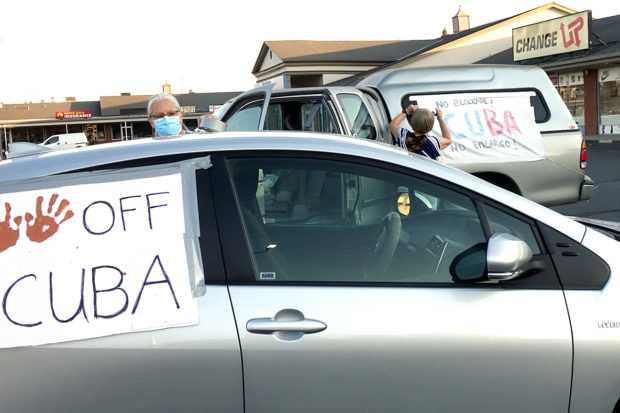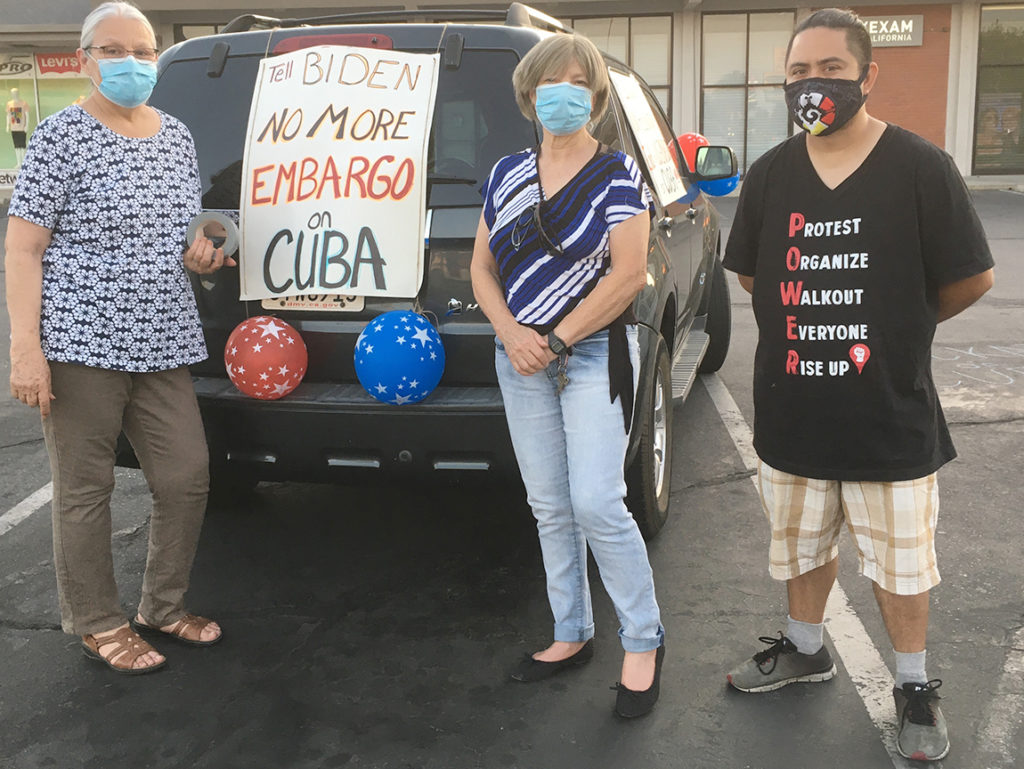
On June 20, several activists organized a car caravan in north Fresno to protest the U.S. blockade of Cuba. They did so in anticipation of the UN General Assembly vote on the topic, which took place on June 23. As expected, most countries of the world voted to end the blockade imposed unilaterally by the United States against the small Caribbean island of Cuba in 1962.
Since the annual vote was introduced in 1992, the majority of the world’s countries and people have repeatedly voted overwhelmingly against the U.S. unilateral and illegal blockade. When the U.S. Ambassador to the United Nations voted on this resolution, the vote was in the name of the people of the United States. But for many activists, the blockade does not reflect the sentiment or will of the people in the United States.
The caravan organizers said they wanted the U.S. Ambassador to the United Nations to vote yes on the resolution or at least abstain as the United States did under the Obama administration. In 2019, the United Nations approved a resolution, “Necessity of ending the economic, commercial and financial blockade imposed by the United States of America against Cuba,” with 187 votes in favor, three against it (United States, Israel and Brazil) and two abstentions.
The activists also took this opportunity to bring people together to increase pressure on President Biden to end the 61-year-old cruel blockade against Cuba.

The car caravan idea started in Miami, where Cuban-Americans began to call for an end to the U.S. regulations hurting their families—the blockade or embargo. The United States intensified and tightened this economic siege even during the pandemic at a time when Cuba was sending doctors wherever they were requested to fight Covid-19 and developing vaccines to help not only Cuba but also the world.
“The hearts of you, the scientists, are worth millions…and we have to consider that this will be good not only for the more than 11 million Cubans, but also for millions of people in the world, above all for those who are the poorest, who have no access to any of the other vaccines,” said Cuban President Miguel Diaz-Canel during a public event in Havana.

